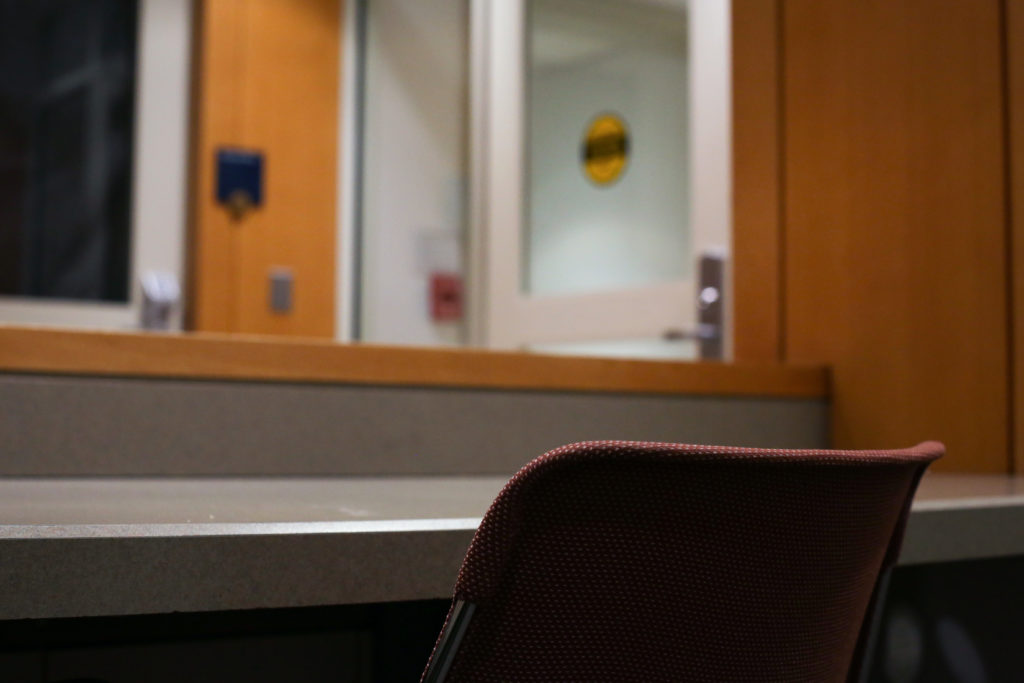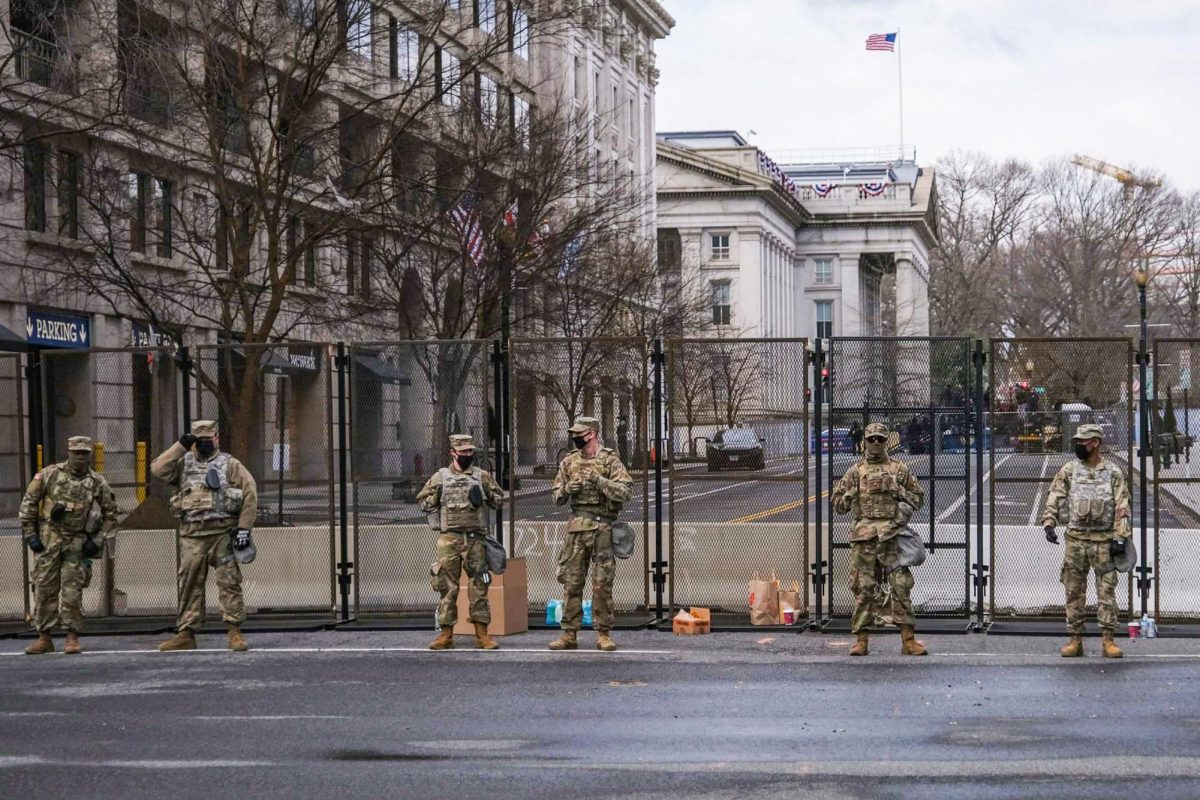Administrators are reducing security levels in residence halls after monitoring lobby activity 24/7 through the first week after move-in.
GW Police Department Chief James Tate said officials contracted Allied Universal Security to assign officers to monitor building access while the student access monitor positions remain inactive during the pandemic. He said officials tightened security around the move-in period, when citywide security concerns near the presidential inauguration also shut down campus, but the officers will now rotate between halls and assist others as needed.
“GW assigned security professionals to staff the residence hall access desks full time during the first week after move-in to provide increased presence and support to students as they re-acclimated to campus life,” Tate said in an email. “The goal was to educate students on the access requirements and to increase security during the presidential inauguration.”
Tate said the front desk officers are typically responsible for controlling building access, verifying GWorld carriers and preventing potentially dangerous people from entering the building.
“Our main goal is a ‘presence,’ which helps to deter actors who may want to enter the residential space to do harm or commit a crime,” he said.
Tate said officials also use the GWorld system, which requires students to tap into three checkpoints before accessing a room for added security, while GWPD officers monitor closed-circuit television footage of common area space to operate “virtual patrols” in residence halls.
Tate added that members of the Office of Student Rights and Responsibilities enforce GW’s no-guest policy rather than front desk security, but students should continue to follow the rule to maintain campus safety during the COVID-19 pandemic.
“Community members should be aware of their surroundings and avoid providing access to anyone without appropriate permissions,” he said.
But under the assumption that front desk security would enforce the no-guest policy, students said the relaxed security policy is a way for residents to sneak in guests from off campus. Students said they wish the officers would enforce the rule themselves, but they still feel safe with the current level of building security.
Freshman Alex Rainey, who lives in Shenkman Hall, said they noticed the drop in security when officers were absent from the front desk for about a week last month. They said they weren’t notified that security would decrease, but they wish officials would keep the same security levels as during the move-in period.
“The University really wants to take it seriously, so the fact that there aren’t regular security officers makes it seems like they are not taking it seriously,” they said.
Rainey said they noticed a drop in security at night despite normally seeing officers during the daytime, adding that safety could be enhanced if officers were stationed more consistently.
Without enforcing the no-guest policy, Rainey said a lighter police presence means there is more opportunity for students to bring guests into their rooms. They said they hope security stops people without GWorld cards from entering the building.
Maureen Rafter, a freshman living in Shenkman Hall, said she’s “not terribly bothered” by the security levels but wishes for a more consistent presence of officers whom students could approach with issues instead of contacting an area coordinator. Rafter said she expected the security officers to enforce the no-guest policy, which she said would be “the easiest way” to ensure students follow COVID-19 guidelines.
She added that the lack of security might make it easier for students to bring in restricted guests, and she hopes an officer would stop a student or guest who walks into the building without GWorld access.
“It’s just nice to have somebody reliable to make sure that we’re safe and that guidelines are being followed,” Rafter said.
Preston Schiller, a freshman living in South Hall, said front desk officers are in his building’s lobby “two out of three times,” and he feels safe with the level of security in the building. He said he also thought officers would enforce the no-guest policy and said students might be more willing to exploit the lack of security when officers are absent.
“It’s going to be pretty hard to get in, but of course if there’s no one there, you can get someone in,” Schiller said. “If there’s a security guard there, you’re not going to be able to get someone in.”
Because the security personnel have been consistent in South Hall, he said restricted guests entering the building would most likely remain uncommon.
“It’s sporadic and you don’t know when the security guards are going to be there, [so] you kind of police yourself in a way,” Schiller said. “I feel safe.”








